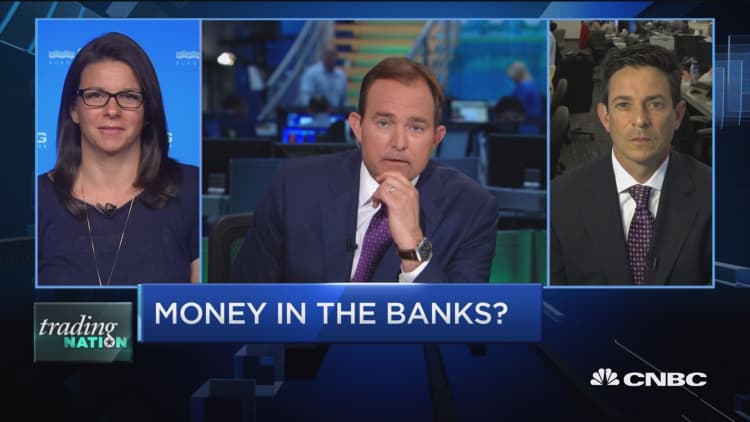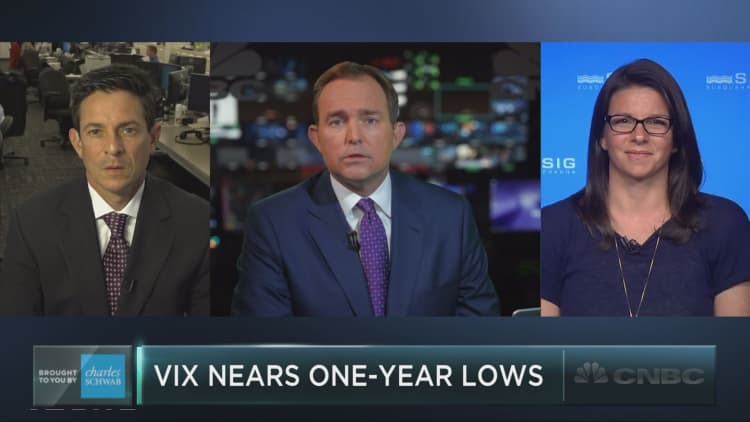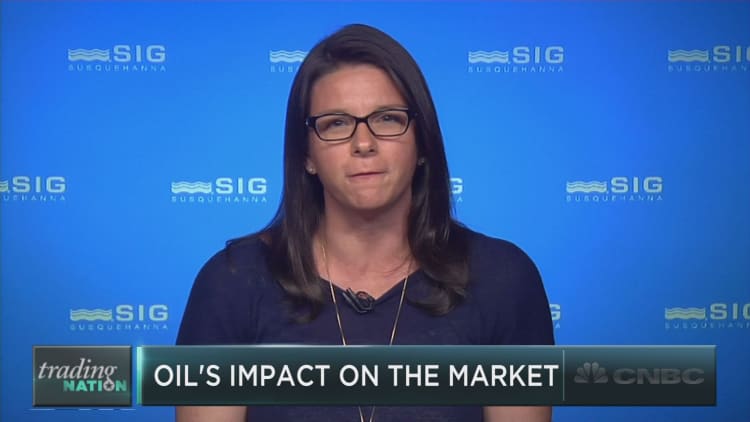


The big banks have been beating second-quarter earnings estimates, but the financials may remain the 's worst-performing sector unless certain conditions are met.
The first, according to Stifel Nicolaus portfolio manager Chad Morganlander, is that the yield curve needs to normalize. Banks usually borrow in the short term and lend longer term, so a normal yield curve, which has an upward slope, allows them to borrow on lower short-term rates and lend on higher rates long term.
Along the same lines, Morganlander also believes the Federal Reserve needs to step in.
"The critical thing here is the normalization of central banks," he said Monday on CNBC's "Power Lunch." "As the Federal Reserve starts to raise interest rates, albeit they don't need to raise a whole heck of a lot, then that, too, will be a plus for financials."
"With that said, credit quality looks good for the financials sector, the big banks," added Morganlander. "Credit demand here in the United States is starting to pick up a bit. We actually think the financials are undervalued and as a value investor, we would now be accumulating shares."
The financials sector is still the worst-performing sector in the S&P 500 year to date. While the category's big names like Goldman Sachs, JPMorgan and Bank of America have beaten second-quarter earnings estimates, the banks as a group are still down 10 percent this year.
Rates aside, a lot also depends on investor sentiment, and the current outlook still doesn't appear promising as Stacey Gilbert, head of derivative strategy at Susquehanna Financial, observes.
"If we look at it from an ETF perspective, financials have actually seen the largest outflows year to date," she said on "Trading Nation." "You've got about $6.3 billion that have come out, the AUM of financial ETFs is down about 21 percent, which when you include performance, we have not seen any change in sentiment there."
"We don't see any evidence that investors are moving to the ETFs or moving to the options, looking for anything that's going to rebound quickly," she said.





